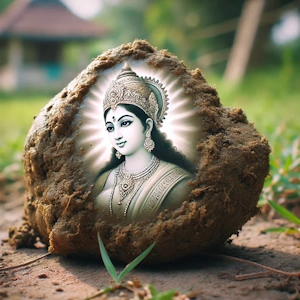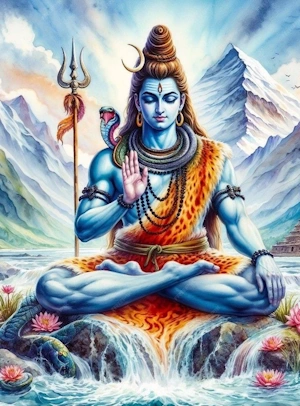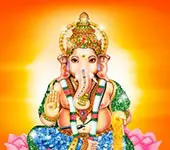सञ्जय उवाच |
दृष्ट्वा तु पाण्डवानीकं व्यूढं दुर्योधनस्तदा |
आचार्यमुपसंगम्य राजा वचनमब्रवीत् || 2.1 ||
Transliteration:
sañjaya uvāca |
dṛṣṭvā tu pāṇḍavānīkaṁ vyūḍhaṁ duryodhanastadā |
ācāryamupasaṅgamya rājā vacanamabravīt || 2.1 ||
Meaning:
Sanjaya said: O King, after looking over the army gathered by the sons of Pandu, King Duryodhana went to his teacher and spoke the following words.
This shloka sets the stage for the discourse between the characters of the epic, as it portrays the moment when Duryodhana, one of the central figures representing the Kauravas, assesses the army formations before the great battle of Kurukshetra and then approaches Dronacharya.
In today's context - A litigation
In a legal battle, much like in the ancient battlefield of Kurukshetra, assessing the strengths and weaknesses of the opponent is crucial for devising a winning strategy. Let's imagine a high-stakes courtroom drama where two legal teams are gearing up for a landmark case, reminiscent of the epic confrontation between the Kauravas and the Pandavas.
In this scenario, imagine a seasoned lawyer, akin to King Duryodhana, leading one of the legal teams. As the trial date approaches, this lawyer meticulously studies the arguments, evidence, and tactics of the opposing counsel, much like Duryodhana scrutinizing the enemy army's formations. Understanding the strengths and weaknesses of the opponent's case becomes paramount for formulating a winning legal strategy.
At this critical juncture, the lawyer seeks guidance from a venerable senior attorney, analogous to Dronacharya in the Bhagavad Gita. This wise mentor, with years of experience in the legal battlefield, provides invaluable insights and counsel. They advise the lawyer on how to leverage their strengths, exploit the opponent's weaknesses, and present a compelling case before the judge and jury.
Just as Duryodhana consulted his mentor before the battle, the lawyer heeds the advice of the seasoned legal veteran, incorporating their wisdom into their approach. With a deep understanding of the opponent's position and the guidance of their mentor, the lawyer enters the courtroom with confidence, ready to wage a legal battle akin to the ancient conflicts portrayed in the Bhagavad Gita.
Key takeaways
- Thorough Assessment of the Opponent: Just as Duryodhana assessed the Pandava army, it is essential in any competitive environment to meticulously evaluate the strengths and weaknesses of the opposition. This includes understanding their strategies, resources, and potential moves to anticipate and counter them effectively.
- Strategic Planning:Knowing the opponent's capabilities allows for the formulation of a well-crafted strategy. This strategic planning is crucial for success, whether in business, sports, or any competitive field.
- Seeking Expert Advice:Duryodhana sought guidance from his mentor, Dronacharya. Similarly, in any competitive context, consulting with experienced professionals or mentors can provide critical insights and advice. Their wisdom and experience can guide decision-making and strategy formulation.
- Leveraging Strengths and Exploiting Weaknesses:The advice from a seasoned mentor helps in understanding how to leverage one's own strengths while exploiting the weaknesses of the opponent. This dual focus enhances the likelihood of success.
- Preparation and Confidence:Being well-prepared and having a clear strategy leads to increased confidence. Entering any competitive scenario well-prepared is crucial for achieving favorable outcomes.
- Adaptability and Wisdom:The analogy underscores the importance of being adaptable and wise. Situations in any competitive environment can change rapidly, and having the guidance of an experienced mentor can help in adapting to new challenges effectively.
- Respect for Expertise:The value of respecting and utilizing the expertise of others is highlighted. Duryodhana's consultation with Dronacharya demonstrates the importance of acknowledging and incorporating the knowledge of those who have more experience.
Comments
Read more comments
Knowledge Bank
What happens if Sun is weak in the horoscope?
The indications of a weak Sun are - lack of self-confidence, lack of willpower, inability to face difficult situations, fear, lack of drive, dependent on others, always looking for approval from others, lethargy, denial of ancestral property, anemia, less blood volume, lack of digestive power, weak heart, problems with blood circulation, pitta diseases, heat-related diseases, burn injuries, bone diseases, lack of immunity, inability to bear cold weather.
What is the significance of the Shri Azhagiyasingar Temple in Kanchipuram?
The temple is a significant Vaishnavite shrine dedicated to Lord Vishnu in his Narasimha avatara, known for its rich legend, historical importance, and architectural beauty.



